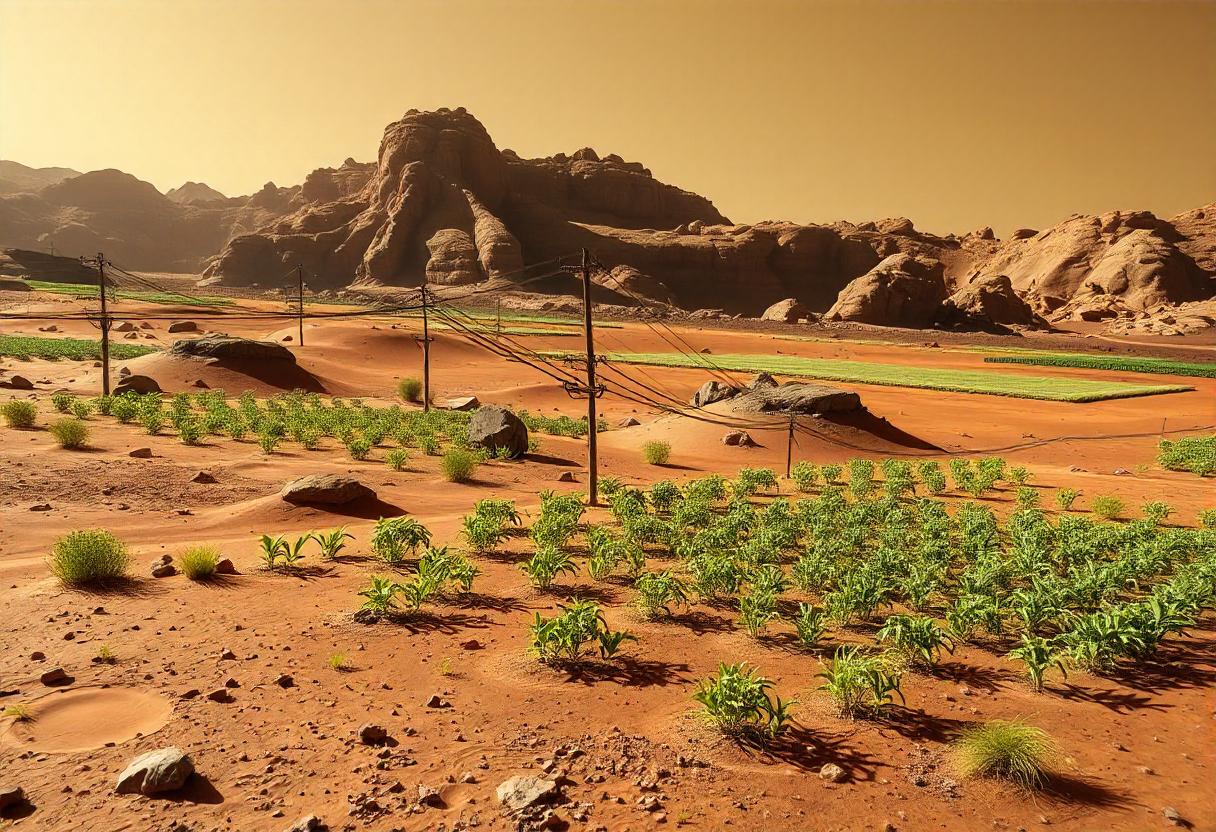
The Need for Martian Agriculture
As humanity plans for future colonization of Mars, establishing a sustainable food supply becomes crucial. Traditional methods of agriculture will not be feasible due to Mars’ harsh environment, making it essential to explore innovative agricultural techniques. Growing food on Mars would support long-term human habitation by providing essential nutrients, reducing dependence on Earth, and contributing to the overall sustainability of Martian colonies.
Challenges of Martian Agriculture
Agriculture on Mars faces several significant challenges. The planet’s thin atmosphere, extreme temperatures, and lack of liquid water pose major obstacles. Mars’ soil, known as regolith, is not naturally conducive to plant growth due to its composition and lack of organic matter. Additionally, the low gravity and high levels of radiation can impact plant health and growth.
Solutions and Techniques
To overcome these challenges, scientists and researchers are developing various techniques for Martian agriculture. One promising approach involves growing plants in controlled environments such as greenhouses or bio-domes. These structures can simulate Earth-like conditions by regulating temperature, humidity, and light. Hydroponics, a method of growing plants without soil using nutrient-rich water, is also being explored as a potential solution. Additionally, research into Martian soil enhancement and the use of genetically modified plants that can withstand extreme conditions are ongoing.
Research and Experiments
Several experiments have been conducted to test agricultural viability on Mars. NASA’s Veggie experiment, part of the International Space Station (ISS) program, aims to understand how plants grow in microgravity and could provide insights for Martian agriculture. Similarly, the Mars Society’s Mars Desert Research Station (MDRS) conducts experiments in simulated Martian environments to explore growing food in isolation.
Potential Benefits
Successfully establishing agriculture on Mars could have numerous benefits. It would provide a renewable source of food for Martian colonists, reduce the need for supply missions from Earth, and help create a self-sustaining colony. Additionally, the technologies and techniques developed for Martian agriculture could have applications on Earth, particularly in arid and challenging environments.
Future Prospects
The future of agriculture on Mars involves continued research and experimentation. As technology advances and our understanding of Martian conditions improves, the feasibility of growing food on Mars will become clearer. Collaboration between space agencies, research institutions, and private companies will be essential in developing the innovative solutions needed to make Martian agriculture a reality.